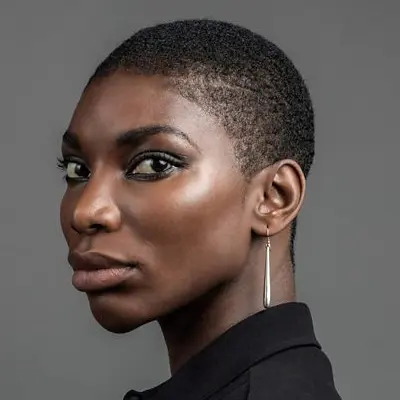Michaela Coel's I May Destroy You is an "expletive-worthy triumph" that's about so much more than rape
-

"Making fiction about rape is a high-wire act, fraught by controversy and opportunities for hurt feelings," says Josephine Livingstone. "That’s true even or perhaps especially if it has happened to you. Coel has said she was drugged and assaulted a few years ago, and that the two-and-a-half-year writing process on I May Destroy You was 'cathartic,' but the stakes are high: If the show had been a flop, or some other kind of failure, it could have been a personal catastrophe. On a human level, Coel’s achievement with I May Destroy You is an expletive-worthy triumph. But if we focus on moments like the existentialist Google search, the rape itself fades away to reveal a television show that is not only an embodiment of, but a creative work about, Coel’s genius. Bella’s entire journey so far (I haven’t seen past episode six, of a total 12) has been about the long slog to the center of herself. That journey is literal in some ways, since she is investigating a crime with herself at its center, but it is also an odyssey into Bella’s subconscious. Memory is a particularly fruitful theme for Coel. In an evidence-collecting interview, for example, Bella asks a police staffer, 'How could you know, when I’m the one it happened to, and I don’t know?' On a technical level, beyond the diamond script, I May Destroy You stands out for its music—a blend of vintage U.K. garage hits and contemporary releases—and cinematography. The camera has a gaze with a force of its own and never flinches when horrible things happen, giving the viewer of I May Destroy You a role as witness. Then again, so much is left out. Six episodes in, for example, we have no idea what Bella’s all-important new book is even about. In the show’s cinematography, Coel has crafted a selective gaze that mimics the tics of her own protagonist’s mind, deleting and adding knowledge as the chemistry of cognition dictates, its logic an alchemical mystery."
ALSO:
- Calling I May Destroy You a "consent drama" is like damning it with moral praise: "I May Destroy You... has been widely described as a consent drama, a 12-episode, 30-minute series that takes a prismatic view of sexual assault and its ramifications," says Willa Paskin. "The show absolutely is that, but this description can sound like damning it with moral praise, like what I’m really trying to tell you is that it’s good for you, instead of that it’s good. I May Destroy You, though, is fantastic, in ways that both do and do not have anything to do with its multivalent treatment of rape and trauma." Paskin adds: "At a certain point, I May Destroy You reveals itself to be something of a poioumenon, 'the rhetorical term for a work of art that tells the story of its own making'....As Arabella’s memory of exactly what happened the night of her assault returns, she doesn’t share it with us directly: instead she fictionalizes it, finally artist enough to take what happened to her and make it her own."
- I May Destroy You is a hangout vehicle, a detective story, a nonlinear travelogue, and a comic bildungsroman
- Michaela Coel on comparisons between her and Arabella: "Many of the things that happened to Arabella did not happen to me," she says. "In many ways, there is no separation between Arabella and I, but in other ways, of course there is, because she exists on that screen and I'm here. There are many things that feel very similar, but, also, I've written a fictional story. It's hard to answer this question and that's the kind of magical element of television."
TOPICS: Michaela Coel, HBO, I May Destroy You
More Michaela Coel on Primetimer:- HBO is leaving Euphoria fans to fend for themselves after "traumatizing" them
- Michaela Coel's Emmys speech dedicated to sexual assault survivors was something rare -- a speech directed at viewers, not attendees
- The Emmys failed to reflect a TV landscape that is exciting, daring and more abundant than ever
- Seven Takeaways From the 2021 Emmy Awards
